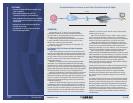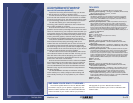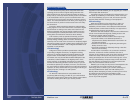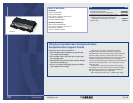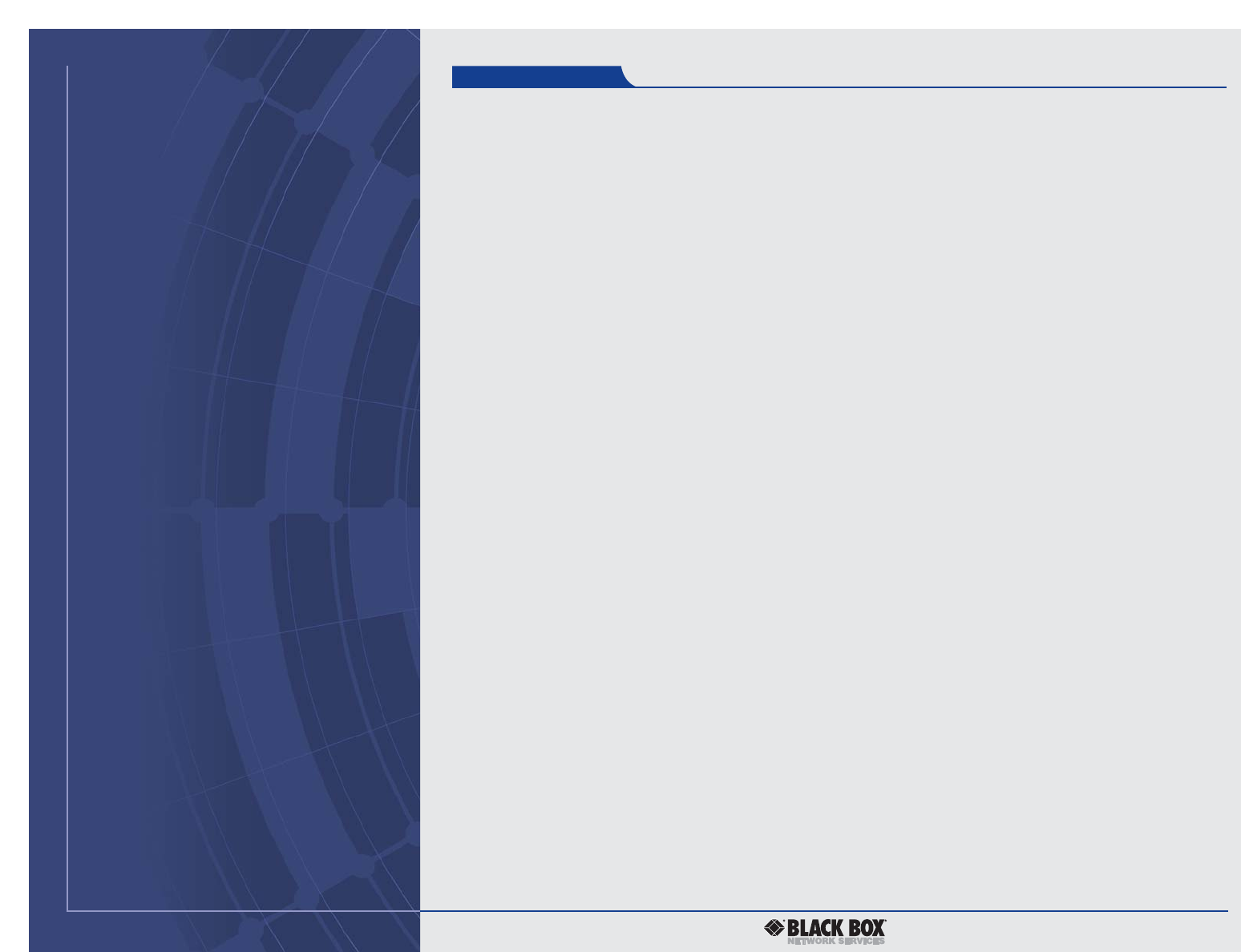
4 of 5
5/1/2007
#18210
724-746-5500 blackbox.com
In the last 20-some years, phone companies have been
replacing portions of their original analog networks with
faster digital circuits, which encode information as either a
binary one (1) or zero (0). But the slowest portion of the PSTN
to be overhauled is the one you’re most familiar with: the
connection from your home to the phone company’s central
office . As a result, bottlenecks occur when you’re trying to to
surf the Internet or perform remote access from home. Why
the slowdown?
Conversion. Data-transmission speeds are reduced when
analog signals on one end of the link are converted to digital
and then back to analog on the other end of the link. The
difference between the original analog waveform and the
reconverted signal is called quantization noise. It limits the
analog data-communication channel to about 35 kbps.
V.34+ modems, with top speeds of 33.6 kbps, avoid the
analog-to-digital hassles. They treat the PSTN as if it were
entirely analog, avoiding all the conversion slowdowns.
However, since one end of the connection is completely digital
(the phone company’s), V.34+ modems aren’t making the most
of the available bandwidth—and the digital bandwidth to be
exploited is nearly 64 kbps.
V.90 technology
V.90 gets around the problem. Quantization noise affects
only analog-to-digital conversions, not digital-to-analog.
There are no analog-to-digital conversions between a V.90
digital modem and the PSTN, and the digitally connected
transmitter uses only the 256 discrete 8-bit PCM (pulse code
modulation) codes available on the digital portion of the
phone network. So the digital information from the PSTN
reaches the V.90 analog modem’s receiver intact, so you can
download at speeds up to 56 kbps. (In the U.S., the FCC limits
the actual speed to 53 kbps.) Note that a V.90 analog modem’s
upstream, or send, channel does not go through an analog-to-
digital conversion, limiting it to V.34+ speeds.
x2 technology
U.S. Robotics V.90 modems are compatible with its
proprietary 56K technology, x2. With x2, you can download
information nearly twice as fast as with ordinary V.34 modems
and reduce waiting time. When your service provider
upgrades to the V.90 standard, you can upgrade your modem
with a simple flash download.
And when using an x2 faxmodem for telecommuting, you
can speed up the delivery of information, which means you
can access databases, get your e-mail, and access corporate
Intranets faster, without investing in new equipment.
V.92 technology
With the introduction of x2 technology in 1997, U.S.
Robotics introduced a marked change in the ease and
availability of Internet data. The subsequent V.90 standard
unified the data communications industry in its approach to
providing dialup access to remote data.
Next came the V.92 standard. It improves the achievements
of both x2 and V.90 technologies by making access to the
Internet even simpler and less expensive.
The V.92 standard enhances V.90 in three major ways:
• It provides a faster, more balanced upstream to
complement the 56 kbps downstream rate found in x2
and V.90 technologies.
• It defines a mechanism for significantly shortening the
dialup connection time.
• It provides a method for effectively sharing a data line
with voice functionality.
A V.92 modem “remembers” the connection conditions
each time and tests for similar conditions each time it
connects. If the conditions match those from the last time the
modem was used, V.92 restores the previous connection,
cutting 30 to 50 percent off the normal training time. In the
case of a typical desktop computer setup, which often dials
the same ISP point of presence from the same phone line
every time, this situation will be common.
Whether you’re ready for the power of V.92 depends a lot
on your ISP. Does it currently support the new V.92
technology? Even if it doesn‘t, you can take advantage of
Internet Call Notification (ICN) now. ICN enables you to
identify callers attempting to reach you while you’re on-line.
And because V.92 is backward compatible to older
technologies, you’ll be ready to enjoy the benefits of V.92
as soon as your ISP upgrades.
Technically Speaking




